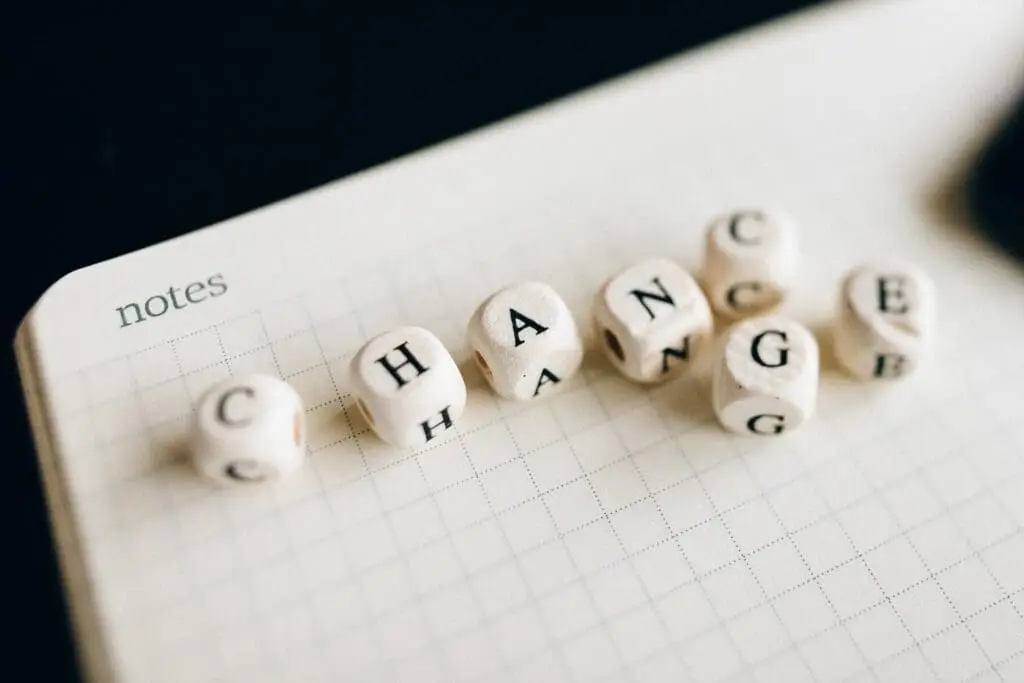Have you ever wished you could just cut out the parts of yourself that you don’t like? Maybe it’s a short temper, a tendency towards procrastination, or a lack of self-confidence. Whatever it is, it can be tempting to try to divorce yourself from those traits and present a more polished version of yourself to the world. But here’s the thing: you can’t divorce the parts of yourself that you don’t like. They are a part of you, for better or for worse. And the more you try to push them away, the more power they gain over you. In this article, we’ll explore why it’s so important to embrace your whole self, even the parts that you don’t like. We’ll look at the benefits of self-acceptance, and we’ll give you some practical tips for learning to love all the parts of yourself, even the ones that you wish weren’t there. So if you’re ready to stop fighting against yourself and start embracing your whole self, read on!
Society’s pressure to conform to certain standards
From a young age, we’re taught that there are certain traits and behaviors that are desirable, and others that are not. We learn about the importance of being polite, responsible, and hard-working. We’re told that we should always strive for success, and that failure is something to be ashamed of. These messages are reinforced by the media we consume, the people we surround ourselves with, and the culture we live in.
As a result, many of us end up feeling like we have to fit into a certain mold in order to be accepted by society. We try to hide our flaws and present a perfect image to the world. But the truth is, nobody is perfect. We all have parts of ourselves that we don’t like, and trying to hide them only makes us feel more isolated and disconnected from others.
The dangers of rejecting parts of yourself
When we reject parts of ourselves, we create an inner conflict that can be incredibly stressful and draining. We start to feel like we’re not good enough, and that we need to constantly prove ourselves in order to be accepted. We might become anxious, irritable, or depressed. We might start to feel like nobody really understands us, and that we’re all alone in the world.
But rejecting parts of yourself also has external consequences. When we try to hide our flaws and weaknesses, we create a false image of ourselves that others can’t relate to. We might come across as cold, distant, or insincere. We might struggle to form meaningful relationships, or to connect with others on a deep level.
The benefits of accepting your whole self
On the other hand, accepting your whole self can be incredibly liberating and empowering. When you embrace all the parts of yourself, you create a sense of inner peace and harmony that radiates outwards. You start to feel more confident and self-assured, and you’re able to connect with others in a more authentic way.
Accepting your whole self also means accepting your flaws and weaknesses. Instead of seeing them as something to be ashamed of, you can see them as opportunities for growth and learning. You can start to develop self-compassion and forgiveness, and to treat yourself with the same kindness and understanding that you would offer to a friend.
Strategies to embrace your whole self
If you’re ready to start embracing your whole self, here are some strategies that can help:
### Overcoming fear and shame
The first step in embracing your whole self is to confront the fears and shame that are holding you back. Ask yourself: what am I afraid of? What do I feel ashamed about? Write down your answers, and try to be as honest and vulnerable as possible. Remember that it’s okay to feel scared or ashamed – these are normal human emotions. The important thing is to acknowledge them, and to start working through them.
### Self-compassion and forgiveness
Once you’ve identified your fears and shame, it’s time to start practicing self-compassion and forgiveness. This means treating yourself with kindness and understanding, even when you make mistakes or fall short of your own expectations. Try to speak to yourself the way you would speak to a friend who was going through a tough time. Remind yourself that nobody is perfect, and that it’s okay to make mistakes.
### The power of vulnerability
Vulnerability is the key to authentic connection with others. When you’re vulnerable, you allow others to see the real you – flaws and all. This can be scary, but it’s also incredibly rewarding. When you let down your guard and show your true self, you create space for others to do the same. You might be surprised at how much deeper and more fulfilling your relationships become when you embrace vulnerability.
### Practices to cultivate self-love
Finally, there are a number of practices that can help you cultivate self-love and acceptance. These might include meditation, journaling, or therapy. Whatever works for you, make sure to set aside time each day to focus on your own well-being. Treat yourself with the same care and respect that you would offer to someone you love.
Conclusion: Why embracing your whole self is the key to happiness and fulfillment
Embracing your whole self is not always easy. It requires courage, vulnerability, and a willingness to confront your fears and shame. But the rewards are immense. When you accept all the parts of yourself – even the ones that you don’t like – you create a sense of inner peace and harmony that radiates outwards. You become more confident, more authentic, and more connected to others. You start to realize that you are enough, just as you are. So if you’re ready to stop fighting against yourself and start embracing your whole self, know that you’re not alone. It’s a journey that we all must take, but one that is well worth the effort.







